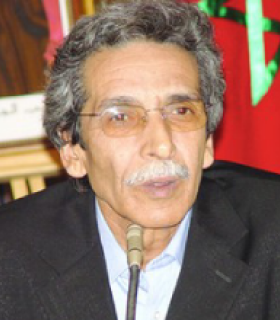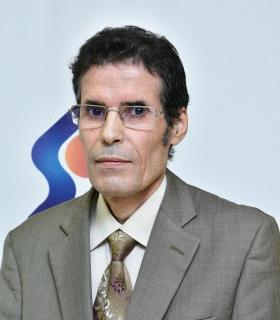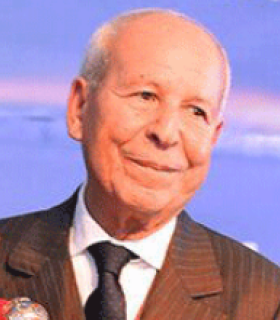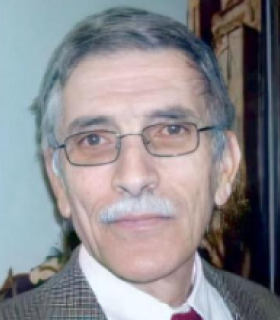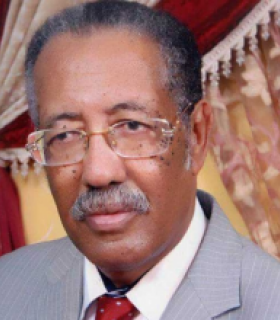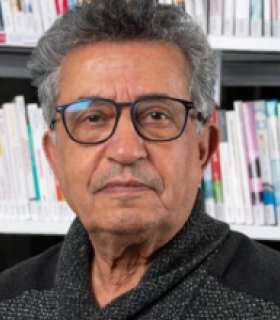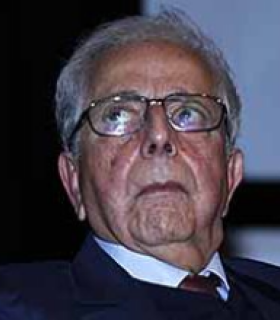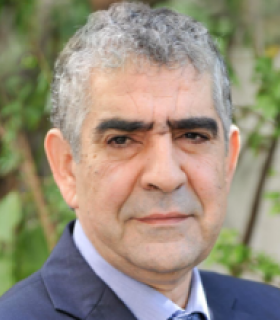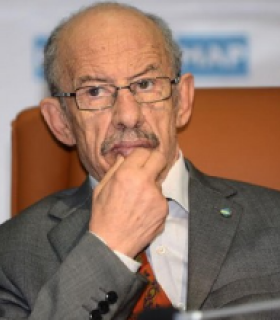About the Commission
1- Establishment and mandate
Established on January 7, 2004, by His Majesty King Mohammed VI, the Equity and Reconciliation Commission (IER) was established following a recommendation from the Human Rights Advisory Council (CCDH), precursor to the National Human Rights Council (CNDH). In his royal speech on the occasion, His Majesty the King bestowed historical significance upon the Commission, entrusting it with eminent responsibilities as a truth and equity commission.
The IER, functioning as a transitional justice mechanism, is the culmination of a voluntary and gradual process to address past human rights violations. It is the outcome of interactions and discussions among political actors, civil society and the victims of violations and their families, aimed at identifying optimal approaches for resolving past violations in a fair and equitable manner.
The IER was established a few years after the conclusion of the Independent Arbitration Commission's work, tasked with compensating victims of enforced disappearance and arbitrary detention. The new Commission undertook ambitious tasks and was mainly responsible for addressing serious human rights violations, identifying their nature and assessing their extent in line with human rights standards, democratic principles and the rule of law. The Commission was also in charge of formulating recommendations to prevent the recurrence of such violations. The IER was a landmark in Morocco's commitment to addressing past human rights violations through transitional justice, positioning the country as a pioneer in the North Africa and Middle East region for adopting such a transformative approach.
At its inception, the IER was the world's first truth commission with the authority to directly award reparations. Spanning 43 years, from 1956 to 1999, its mandate covered one of the lengthiest periods in the history of transitional justice experiences globally.
The Commission developed its own Rules of Procedure, approved by Royal Decree N° 1.04.42 on April 10, 2004, and published in the Kingdom’s Official Gazette N° 5203 on April 12, 2004. These regulations delineate the missions, establish the jurisdiction, and specify the operational procedures of the IER, aligning with international standards and guidelines.
Comprising a president and 16 members from diverse backgrounds, including civil society and the Advisory Council on Human Rights, the IER conducted its missions in alignment with a strategically designed action plan tailored to the different phases of its work. The actions of the IER were grounded in the principles and standards of international human rights law and international humanitarian law, specifically addressing the right to legal remedy, reparation for harm and the right to truth. Noteworthy was its consideration of insights drawn from the experiences of countries engaged in equity and reconciliation processes. Additionally, the IER prioritized preserving memory, rehabilitating victims and fostering national unity across all levels.
- Truth seeking to determine the categories and severity of past human rights violations through investigating, collecting statements and testimonies, examining official archives and gathering information, data and facts from numerous sources that could contribute to uncovering the truth;
- Pursue investigation into unresolved cases of forced disappearances and uncovering facts, reveal the fate of the missing and find adequate solutions for those whose death has been ascertained;
- Determine the responsibilities of state organs or other parties for the violations and other issues covered by the investigations;
- Prepare a final report presenting the conclusions of its research, investigations and analyses about the violations and their contexts;
- Provide reparation through financial compensation, rehabilitation, social reintegration and other measures based on the investigations conducted to establish the truth.
The internal structure of the IER reflected an adaptable and forward-thinking approach. The Commission implemented an operational framework consisting of three distinct working groups, fostering a dynamic of reflection and interaction in its activities:
- The first working group, dedicated to investigations, was tasked with shedding light on the fate of victims of forced disappearances.
- The second working group focused on the reparation of damages,
- The third working group focused on research and studies and was in charge of analyzing the data, information, and findings obtained by the other working groups
The IER has also established special committees to delve deeper into specific issues and undertake particular missions. These committees are as follows:
- The planning committee;
- The committee on communication strategy;
- The committee on codification and evaluation of the experience of the former Independent Arbitration Commission;
- The committee on legal studies related to the jurisdiction of the IER;
- The committee on information systems;
- The committee on public hearing sessions;
- The committee on thematic meetings;
- The committee on the development of reparations;
- The committee on the final report.
The Commission has also established an administration comprised of administrative and technical executives, along with execution agents, supported by experts and advisors. The administration is organized into units connected to working groups and technical committees. These units include:
- The administrative unit of the working group on investigations;
- The administrative unit of the working group on reparations;
- The administrative unit of the working group on studies and research.
Additional administrative units tasked with addressing cross-cutting issues were established, namely the Presidency and Members’ Secretariat, the Administrative Coordination Unit, the Administrative and Financial Affairs Unit, the Information System Unit, the Records Management, Documentation, and Archiving Unit, as well as the Communication and Information Unit.
Moreover, administrative or technical units were created to handle specific matters, including the Medical Unit and the Records Pre-Analysis Unit.
Members
Some of the IER's Recommendations
It is not the Commission’s prerogative to take a position concerning political or party points of view revealed during public debate on the constitution.
Giving due respect to the two branches that the constitution grants the right to initiate amendments, namely His Majesty the King and parliament, the Commission recommends, in its thinking about issues requiring to be taken into account in the heart of the constitution of the country, when possible, the following:
- Consolidating respect for human rights and improving security governance, especially in case of crises;
- Promoting the constitutional entrenchment of human rights as internationally recognized by clearly rooting the principle of the supremacy of relevant international treaties and conventions and in general the international human rights standards and humanitarian law over domestic laws;
- Clear constitutional enunciation of the content of basic freedoms and rights, including for example the freedoms of movement, expression, demonstration, trade union and political organization, assembly, and strike, and the confidentiality of correspondence, the sanctity of the home and respect of private life, and to make them sufficiently immune to any disruption by normal legislative, regulatory or administrative work. It must also enunciate the provision that makes the regulation of this field the prerogative of the law, and oblige the legislator himself, whenever he regulates their exercise, to legislate, in addition to the existing safeguards, additional protective safeguards as well as providing means of recourse to the courts for citizens who consider themselves to have suffered injury while exercising any of these rights or freedoms;
- Consolidating constitutional safeguards of equality, by enunciating gender equality in political, economic, social and cultural rights;
- Consolidating constitutional control of laws and independent regulatory decrees issued by the executive branch, and enunciating in the constitution the right to claim an exception on the grounds of the unconstitutionality of a law, while referring the matter to the Constitutional Council for a final decision, and to lay down detailed conditions for that, so as to avoid too many claims of unconstitutionality of laws issued by parliament being referred to the Constitutional Council;
- Criminalization of forced disappearance, arbitrary detention, ethnic cleansing, and other crimes against humanity, as well as torture and all forms of harsh, inhuman and humiliating treatment and punishments;
- A constitutional ban on all forms of discrimination internationally condemned, and all forms of incitement to racism, xenophobia, violence and hatred;
- Constitutional acknowledgement of the principle of presumption of innocence and the guarantee of the right to a fair trial;
- Consolidation of the principle of the separation of powers, especially as regards the independence of the justice system and the Statute of the Judiciary, with an explicit ban of any intervention by the executive branch in the organization of justice and the conduct of the judicial branch;
- Strengthening constitutional safeguards of the independence of the Supreme Council of the Judiciary and defining its Statute by means of a regulatory law by virtue of which its composition and role will be reviewed with a view to ensuring that it represents other non-judicial parties, acknowledging its human and financial autonomy, giving it wide powers in the field of organizing the profession and laying down its controls, its ethics, and evaluation of the work and efficiency of judges. It should be given the responsibility of preparing an annual report concerning the administration of justice;
- Promoting security governance by strengthening security and maintaining public security both in ordinary circumstances and during crises;
- Clarifying and strengthening the powers of parliament to investigate facts regarding the respect of human rights and uncovering any events that prove the occurrence of gross violations, while obliging it to establish investigation committees with wide-ranging powers to examine cases where it appears that human rights have been violated or are liable to be blatantly violated, and granting the minority also the right to establish such committees;
- Acknowledging the responsibility of the government to protect human rights and to maintain public security, order and administration;
- Composing a high-level committee of constitutional, legal and human rights experts to be entrusted with the task of examining the requirements and the repercussions of the proposed constitutional requirements and to submit suitable proposals to achieve conformity between domestic legislation and international conventions ratified by Morocco in the field of human rights.
- Ratifying the Second Optional Protocol to the International Covenant on Civil and Political Rights, Aiming at the Abolition of the Death Penalty;
- Ratifying the Optional Protocol to the Convention on the Elimination of All Forms of Discrimination against Women and withdrawing, the reservations that Morocco had made to some provisions of the said convention;
- In fulfilment of its signature to it, ratifying the statute of the International Criminal Court, while examining the constraints raised.
3.1. Legal Reinforcement of Individual and Collective Rights and Freedoms
- Examining carefully judicial ante hoc and post hoc procedures and mechanisms intended to ensure a balance between the necessity of broadening the scope of freedoms on the one hand and on the other the preservation of the dignity and private lives of individuals and the requirements of combating terrorism, hatred, violence and discrimination;
- Strengthening judicial supervision after rulings are issued;
- Examining carefully methods of strengthening and improving the self-regulation of professional institutions, especially as regards ethics, code of conduct and settlement of internal disputes.
3.2. Gross Violations of Human Rights
Conformity of domestic criminal legislation with the country’s commitments and obligations as regards international standards, and the crimes of enforced disappearance and arbitrary detention, and in particular as regards:
- Inserting the definitions, descriptions and constitutive elements attributed to them in international conventions into the Moroccan Penal Code, insofar as they are crimes ;
- Inserting the elements of responsibility relating to them and the sanctions laid down, as internationally defined;
- Punishment of perpetrators of violations and their accomplices with the most severe sanctions, whatever their rank, position, or post, or whatever relationship they had with the restriction of freedom or the implementation of the law, or whoever carried out their orders or by virtue of their post supplied assistance or expertise, in addition to anybody who concealed or failed to provide information relating to the crimes of enforced disappearance, arbitrary detention or torture;
- Empowering government officials, agents of public authorities, or minor officials who are charged with carrying out the orders of their superiors to report any information indicating that the said crimes are being committed or that there is an attempt to commit such crimes, whatever the capacity of the authorizing authority;
- Laying down special procedural provisions with regard to the protection of the victims of gross violations of human rights and their rightful claimants, when necessary, in terms of giving them a hearing during the investigation and allowing them to stand as a civil party before the competent judicial body, and in terms of rehabilitation and reparation for injuries;
- The Equity and Reconciliation Commission records its great interest in the government’s initiative to draw up a draft law to criminalize torture, in implementation of the Advisory Council on Human Rights recommendation, and urges parliament to ratify it with the aim of officially publishing it. It considers it necessary to strengthen its provisions in accordance with the above.
- On the basis of the results contained in its Final Report, the Equity and Reconciliation Commission calls for the setting in place of a comprehensive, integrated and multilateral national strategy to combat impunity ; a strategy based on protective legislative provisions in conformity with international standards and the requirements for entrenching and protecting the process of democratization currently under way in the country, in which all legal, judicial, civil, educational and social parties participate by means of programmes aimed at combating, protecting, sensitizing, acculturating and training, and ensuring effective punitive measures and transparent and fair control so as to make a break with all impunity.
- Implementation of the results of the national dialogue conducted on the occasion of the Symposium on Penal Policy in Morocco held in Meknes from 9-11 December 2004. Its conclusions and recommendations are an excellent platform for formulating methods of reform regarding the country’s penal policy, and especially levels of detention, freedom-depriving sentences and their alternatives, alternatives to public prosecutions, and safeguards for the protection and assistance of victims, the protection of the most vulnerable groups and mechanisms of penal justice;
- Consolidating the latest revision of the Code of Penal Procedure with additional provisions and other complementary ones to enshrine respect for human rights and move towards an inquisitorial justice instead of an adversarial one, and to correct deficiencies that have been revealed by practice and have hindered those working in the profession;
- Consolidating the latest revision of the Penal Code by including a clear and detailed definition of violence against women, adopting international criteria in the field, and enunciating more severe sanctions in case of women being subject to violence in all its different forms, including rape by officers of apparatuses entrusted with enforcing the law, and broadening the scope of the criminalization of sexual harassment to include various spheres (instead of limiting it to the workspace as stipulated recent amendments), and adopting the obligation to place women in custody under the responsibility of women officers.
In addition to what has been stated concerning the constitutional strengthening of the judicial branch:
- Separation of the post of minister of justice from the Supreme Council of the Judiciary;
- Locating the Supreme Council of the Judiciary in the headquarters of the Supreme Court;
- Monitoring the acceleration of the pace of reform of the justice system and improving its performance;
- Continuing to modernize the courts;
- Giving incentives to judges and judicial assistants, providing them with basic and in-service training, and regularly assessing their performance;
- Continuing projects to regulate the various judicial occupations and enabling them to order their own affairs as regards rights, duties and ethics;
- Reviewing the regulation and the powers of the ministry of justice so as to prevent any interference or influence by the administrative apparatus on the course of justice or the conduct of trials;
- Criminalization of intervention by the administrative apparatus in the course of justice;
- Strengthening penal sanctions against any violation or infringement of the inviolability or the independence of the judiciary.
- Implementation of the recommendations issued by the Advisory Council on Human Rights contained in its special report on conditions in penitentiary institutions issued in 2004 so as to reform conditions in them by broadening the prerogatives of the sentencing judge, and implementing the systems of conditional release and judicial supervision, and preparing regulations relating to the system of pardon in terms of its procedures and criteria;
- The Ministry of Justice should inform the Advisory Council regularly concerning the progress of implementation, the difficulties it has faced, and their causes;
- Creation of a miniature administrative council, composed of judges, educators and specialists in the field, to give its opinion concerning financial, regulatory and security management, the allocation of human resources, and the choice of prison wardens, their appointment to appropriate positions and assessment of the management of the facility.
8.1. Government Responsibility for Security
- Implementation of the effects of the principle that says the government is corporately responsible for security operations, the maintenance of public order, the protection of democracy and human rights, and obliging it to inform the public and parliament of any incidents requiring the intervention of public force, and to give a detailed account of the course of events, of security operations and their results, responsibilities and any corrective measures to be taken.
8.2. Parliamentary Control of and Investigation into Security Matters
- The political parties represented in parliament should implement the principle of their political and legislative responsibility for the protection of human rights and basic freedoms, whenever there are claims of gross violations of human rights, or grave actions that violate or threaten the values of society and its democratic choice;
- Improving the performance of parliamentary fact-finding committees through the provision of security and legal experts to help them to prepare objective and significant reports devoid of political considerations;
- Strengthening the mechanism of questions and direct hearings by parliament as regards responsibility for the maintenance of security and public order;
- Broadening the parliamentary practice of accountability and hearings to include, in addition to ministers responsible for security and justice, all those directly responsible for security apparatuses and operations of deterrence on the national, regional and local levels.
8.3. The Situation and Regulation of the Security Apparatuses
- The legal framework and the relevant regulatory texts relating to the prerogatives and regulation of the process of taking security decisions should be explained and published, as well as the means of intervention during operations, and the systems of supervision and evaluation of the work of the intelligence apparatuses and the administrative authorities entrusted with maintaining public order and those having the authority to use public force.
8.4. National Supervision of Security Policies and Practices
- Description and classification of security crisis scenarios, the conditions and technologies for intervention appropriate for each, as well as the methods of supervision and the drawing up of reports for security interventions;
- The political supervision of security operations and the maintenance of public order should be made immediate and transparent by publishing reports about security operations, the losses that resulted, the causes for these losses and the corrective procedures adopted.
8.5. Regional and Local Supervision of Security Operations and the Maintenance of Public Order
- Security operations and the maintenance of public order falling within the remit of regional and local authorities should be placed under the immediate supervision of local or regional multi disciplinary, supervisory and monitoring committees;
- After every operation of this sort, a detailed report should be published concerning the events, the operations, the results, and the causes of any excesses that occurred.
8.6. Criteria and Limits for the Use of Force
- All apparatuses and agents of the public authority or the security forces should be obliged to keep all documentation relating to a decision to intervene or to resort to public force, as well as reports, notifications and correspondence relating to it;
- Oral orders or instructions should be considered void, except in cases of imminent danger, provided that the oral orders are then followed by written orders, signed to confirm;
- Anyone who is proved to have concealed the occurrence of human or material losses or to have made excessive use of public force, or to have concealed excesses that occurred or forged, destroyed or concealed documents relating to such should be subject to severe administrative and criminal sanctions.
8.7. In-service Training for Public Authority and Security Agents in the field of Human Rights
- Training and in-service training programmes in the field of human rights and the culture of citizenship and equality should be drawn up for security officials and agents, and those entrusted with maintaining order, using international standards and national legislation relating to human rights;
- Guidebooks and didactic materials should be continuously prepared and published to raise awareness and sensitize security officials and agents concerning the principles of good governance in the fields of security and respect for human rights.
The Equity and Reconciliation Commission calls for a national comprehensive and long-term plan to be drawn up regarding this, on the basis of the national consultations currently taking place round the Advisory Council on Human Rights’ initiative regarding the National Plan for Educating in and Promoting Human Rights. In this context, the Commission considers that the priorities for the promotion of human rights include the following:
- Inserting the fight against illiteracy and informal education into the National Programme for Education on Human Rights;
- Disseminating the experience of citizenship clubs among educational establishments, supporting them and ensuring coordination between them;
- Keeping in mind the principles of human rights as a formative background for the compilation of textbooks;
- Mainstreamting a gender approach into the various stages of the educational process, including the compilation of textbooks;
- Improving the effectiveness of training courses and research groups in the field of human rights in universities, UNESCO chairs, and research groups, and these experiences should be disseminated to all Moroccan universities;
- Inserting human rights training, in-service training, and sensitizing programmes within the framework of a work plan aiming to instil the principles of human rights and human rights education in the programmes and policies of the sectors involved in promoting the culture of human rights;
- Developing the institutional capacities of non-governmental organizations working in the field of human rights and the professionalism of their staff. They should be considered an essential partner when drawing up any policy or work plan seeking to promote human rights culture or education. The continuation and the effectiveness of this partnership should be ensured;
- The culture of human rights should be enshrined in all streams of national culture by means of research, organizing conferences, supervising training courses and publishing intellectual journals;
- Renewing religious thought, reforming religious education, and using the audio-visual media, literature and the arts to spread the human rights culture.
- All national archives should be preserved, and their regulation should be coordinated between the different departments involved. A law should also be enacted to regulate the conditions of preservation, hours of opening to the public, the conditions for consulting them, and the sanctions for defacing them;
- The content of the country’s history syllabi should be gradually reviewed;
- In addition to the tasks entrusted to it, the institute it has recommended to be set up should conduct documentation, research, and publication concerning the historical events relating to the gross human rights violations of the past, development of human rights and democratic reform issues.
- The mandate of the Council to combat violations automatically or on the basis of a request should be strengthened, in the field of investigation and fact-finding in cases of human rights violations;
- It should monitor the conduct of trials;
- The degree of cooperation given by public authorities in its investigations into violations should be increased. The Council should be given access to relevant information and reports and be informed of corrective steps taken regarding them.
- A committee should be set up in the Advisory Council on Human Rights to monitor the implementation of the recommendations issued by the Commission in the fields of truth, reparation for injuries and guarantees of non-repetition. This committee should be invested with wide prerogatives and powers to contact all authorities and bodies involved, and should submit a regular report on the results of its work, including progress made or delays occurring in this field. The Council should also include this report in its annual report on the status of human rights in Morocco;
- A mixed ministerial committee should be set up by the government to monitor the implementation of the Commission’s recommendations, on which should be represented the Ministries of the Interior, Justice, Culture, Communication, Education and Vocational Training;
- The implementation of the results of the work of the Commission in the field of reparation for injuries should be monitored by a monitoring mechanism responsible for the official preparation of decisions issued in the field of compensation of victims and for the procedures for notifying them. It should forward them to the government for implementation and should ensure the implementation of the Commission’s recommendations regarding programmes of reparation for other injuries;
- Technical committees should be set up to monitor the implementation of community reparation projects, on which should be represented the sectors and departments involved. It should provide the government and the monitoring committee emanating from the Advisory Council on Human Rights with regular reports concerning the results of its work;
- Mixed monitoring committees should be set up composed of elected officials, representatives of local authorities, non-governmental organizations and representatives of the technical government departments involved, which should be entrusted with monitoring the implementation of the projects proposed on the commune, provincial and regional levels. It should submit regular reports to the local communes, the government, and the monitoring committee emanating from the Advisory Council on Human Rights.
-The Commission recommends ensuring basic health cover according to Law No.00-65 for persons who have been established to be victims of human rights violations;
-It suggests that by virtue of this, these persons be inserted, in the first stage, in accordance with Clause 4 of this law, as pensioners whose contributions the state will pay on their behalf to the bodies responsible for health cover;
-In a second stage, the Advisory Council on Human Rights could help to prepare a draft amendment on this point, in agreement with the parties involved, by virtue of which this group could be clearly included in the framework of this law;
-A permanent structure should be set up to counsel and assist victims, a sort of referral centre specializing in caring for victims of violations and ill-treatment, in accordance with the following suggestions:
- A national medical coordinator and local medical coordinator should be appointed, attached to the Ministry of Health, especially in the provinces where there are a large number of victims;
- In coordination with the sectors involved, the centre should give scientific training to health workers in this field (doctors, nurses, social assistants etc.);
- The centre should offer counsel and scientific and technical services in the field to all bodies and institutions involved, whether inside or outside the country;
- In view of the pressing need for a structure of this sort at the level of the regions of the Middle East, North Africa and other regions, it could subsequently play a major role as a regional referral centre. In fact, some international organizations and regional associations have expressed their readiness to support a project of this sort;
-According to studies and enquiries conducted by the Commission concerning the health condition of the victims, it transpires that there is a group of them who need to be given special importance in view of their health and social condition, which requires that their health needs be met as a matter of urgency in specialist centres.
-The Equity and Reconciliation Commission commends the royal decree of His Majesty Mohammed VI, addressed to the government, ruling that the total and comprehensive participation of Moroccan migrants should be guaranteed in forthcoming national elections and in the establishment of a supreme council for Moroccan residents abroad;
-It considers that drawing up a political plan that respects the rights and interests of Moroccans abroad requires consultation and coordination between the council that is to be set up and the group of associations and activists working within the communities on the one hand and the government on the other:
- The Commission recommends the creation of a national migration museum to preserve the memory of migrants and their contribution to history;
- In the meanwhile, the activities of Moroccan expatriate amicales (associations), which one way or another played a role in violating the rights of migrants, should be frozen in all public or semi-public institutions;
- The Commission recommends that the Committee charged with monitoring compensation operations should seek to settle the problems of expatriate citizens who have not yet returned to the homeland, by solving the administrative problems which play a particularly important role in preventing their return.

